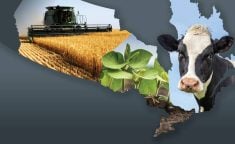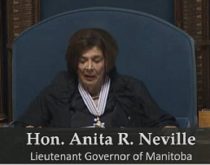Among the long list of complaints to government from producers in recent months, their concern over business risk management programs has been the most consistent.
Other grievances remain. The carbon tax is an irritant, but the now-futile campaign against it has lost steam throughout the pandemic. Lack of labour and access to foreign trade markets are issues that can only be influenced to a degree by a democratic government. Bad weather is beyond Ottawa’s control, and political factors limit a governing party’s willingness to act on rail blockages or strikes.
Read Also

Mazergroup’s Bob Mazer dies
Mazergroup’s Bob Mazer, who helped grow his family’s company into a string of farm equipment dealerships and the main dealer for New Holland machinery in Saskatchewan and Manitoba, died July 6 from cancer.
But commodity groups and sector advocates recognize business risk management can realistically be changed.
They are worth complaining about, if only because consistently arguing the programs are ineffective for farmers has gained legitimate momentum.
Politicians recognize the need for reform.
Prior to the pandemic suspending Parliament, members from each federal party were actively taking part in a study on how to best do just that. At the provincial level, agriculture ministers were working with federal officials, with hints of grand plans for major modifications by this summer.
Then the COVID-19 pandemic hit, prompting more complaints the existing suite of programs didn’t work.
This narrative of ineffective programs is running parallel with federal Minister of Agriculture Marie-Claude Bibeau encouraging producers to enrol in the programs, in part because they are set up to be the basis of support for the sector during difficult times, such as right now.
It’s worth remembering in this context that year over year, the federal government budgets a whole pile of money for business risk management programs that doesn’t get spent.
Different commodity groups offer different solutions to different programs, but the majority focus of producers is a call to reform AgriStability in particular. The program is meant to provide support for farmers when they experience large declines in farm income.
What should be considered a ‘large decline’ is at the heart of much of the back and forth between producers and government.
Many producers say they don’t attempt to access the money because it just isn’t worth accessing.
During the aforementioned parliamentary study on business risk management, MPs even heard an accountant claim the program wasn’t worth the hassle of applying.
In the midst of the pandemic, the same narrative has largely continued.
Producers don’t want to enrol because it isn’t worth enrolling in. Bibeau says producers need to enrol in order to qualify for the support being offered to help them through COVID-19.
That all made MNP’s recent submission to the parliamentary agriculture committee rather interesting.
In the submission from one of Canada’s leading chartered accounting firms, Stuart Person, MNP senior vice-president of agriculture outlines business risk management “modifications and considerations” to leverage the programs in a way that would “get the support to Canadian farmers right away as they face this crisis.”
The report says AgriStability is “well established, functional, scalable and is flexible enough to meet the needs of all sectors of agriculture,” but “in order to be more responsive and more effective to address the significant circumstances that arise when COVID-19-related factors compound upon ongoing farm risks, urgent changes are required.”
Producers should recognize a leading accounting firm’s assertion the program can work, and reconsider any reluctance to enrol.
MNP also suggests removing the limit that is used to trigger payments, as well as temporarily lifting the $3-million cap put on payments and eliminating the participation fee. They say producers should be able to repay any overpayments interest free and over five years.
Bibeau should recognize there is a strong need for support and at least temporary changes to programs are required to ensure that support is sufficient and reaching farmers.
There are other suggestions and the report is worth reading in full.
Given the pandemic circumstances, it is especially valuable to read in full if you are a concerned producer… or a federal agriculture minister.



















